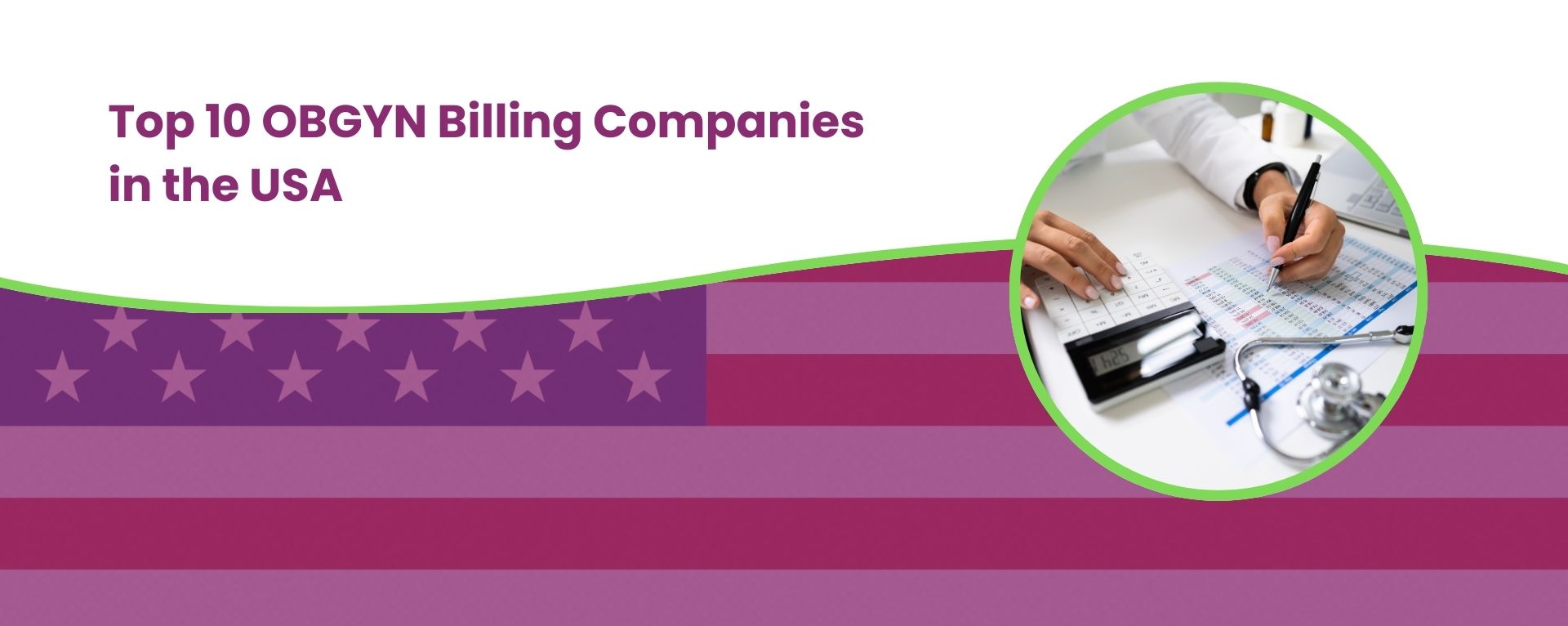Medical billing time limits in California refer to legal deadlines to submit, process, and dispute medical claims. California Department of Managed Health Care (DMHC), the California Department of Insurance (CDI), and federal bodies, such as the Centers for Medicare & Medicaid Services (CMS), enforce these limits.
The timeframes vary and depend on the payer type, such as commercial insurance, Medi-Cal, Medicare, or Workers’ Compensation, as well as whether the action relates to claim submission, reimbursement, or appeal.

Table of Contents
Toggle- How Long Do Providers Have to Submit Medical Bills in California?
- What Is the Time Limit for Insurers to Pay Medical Bills in California?
- How Long Do Patients Have to Dispute or Appeal Medical Bills?
- What Happens If a Provider Misses the Billing Deadline?
- Are There Penalties for Insurers That Pay Late in California?
- Do Workers’ Compensation Claims Have Different Timelines?
- How Does Medi-Cal Billing Timing Differ?
- What Is the Timely Filing Limit for Medicare in California?
- What Entities Regulate Medical Billing Time Limits in California?
How Long Do Providers Have to Submit Medical Bills in California?
California healthcare providers must submit medical claims to commercial insurers within 12 months from the date of service. California Code of Regulations Title 28, §1300.71(b) mandates this deadline. Claims submitted after this period in California are typically rejected unless the provider can demonstrate a delayed eligibility confirmation or a system error.
Medi-Cal providers in California must submit claims within 6 months of the date of service, as outlined in Welfare and Institutions Code §14104.3. A claim may be resubmitted up to 12 months if supported by valid justification, such as retroactive eligibility determination or delayed coordination of benefits. Late submissions without supporting documentation are not accepted.
Medicare providers operating in California follow federal regulations enforced by CMS, requiring that claims be submitted within 12 months of the date of service. Medicare denies all claims beyond this limit unless specific CMS-defined exceptions apply, such as Medicare entitlement that was retroactively granted.
California Workers’ Compensation providers must submit bills within 12 months from the date of treatment. The submission window may be extended up to 5 years under special circumstances, including cases involving cumulative trauma or treatment provided without prior authorization from the employer. This rule is governed by California Labor Code §4603.2.
What Is the Time Limit for Insurers to Pay Medical Bills in California?
Commercial health insurers in California must pay or deny clean claims within 30 working days for electronically submitted claims and within 45 working days for paper claims. California Health & Safety Code §1371 and Insurance Code §10123.13 enforce this requirement. A “clean claim” refers to a claim that includes all necessary documentation and lacks errors or omissions.
Medi-Cal managed care plans are required by the Department of Health Care Services (DHCS) to process and reimburse clean claims within 18 calendar days. This accelerated timeline ensures that providers who treat low-income patients are paid promptly and consistently.
California Workers’ Compensation insurance carriers must pay accepted bills within 45 working days after receiving the complete claim documentation. California Labor Code §4603.2(b) defines this requirement. Insurers are liable for interest and penalties if they fail to comply.
Medicare Administrative Contractors (MACs) operating in California must reimburse clean claims within 30 calendar days, following CMS’s Prompt Payment Rule under 42 CFR §405.926. Medicare adds interest automatically if claims are not paid on time, using the Treasury-based interest rate applicable during the delay period.
How Long Do Patients Have to Dispute or Appeal Medical Bills?
California patients with commercial insurance generally have 180 days from the date they receive an Explanation of Benefits (EOB) to submit a first-level internal appeal. This period is part of the insurer’s standard appeals process and, depending on the insurer, is defined in plan documents regulated by the DMHC or CDI.
Medi-Cal beneficiaries in California must file appeals within 60 days of receiving a notice of denial. Appeals are handled through the State Fair Hearing process, which is regulated by the California Department of Social Services (CDSS). This process requires submission of documentation and a formal request within the defined timeframe.
Medicare recipients in California must request a redetermination within 120 days of receiving a denial. The redetermination process, the first level of appeal in the Medicare system, is managed by the Medicare Appeals Council and requires complete supporting documentation.
California Workers’ Compensation patients and providers who want to challenge a bill review outcome must file for an Independent Bill Review (IBR) within 90 calendar days of receiving the Explanation of Review (EOR). The Division of Workers’ Compensation (DWC) strictly enforces this timeline; any missed deadline results in the automatic dismissal of the appeal.
What Happens If a Provider Misses the Billing Deadline?
California providers who fail to submit medical bills within the prescribed timeframes typically forfeit their right to payment. Claims submitted after the 12-month deadline for commercial insurers are rejected unless the provider submits documentation that demonstrates a delayed insurance verification or a declared emergency that disrupted operations.
Medi-Cal providers in California who miss the 6-month initial submission deadline must provide written justification when requesting a resubmission within 12 months of the original deadline. Acceptable reasons include delays in patient eligibility verification, billing system outages, or pending third-party liability issues.
Workers’ Compensation providers in California lose payment and lien rights if claims are submitted after the allowed 12-month or 5-year window, unless the treatment qualifies under exceptions in CCR §10770.1, such as emergency treatment provided without employer authorization or verified cumulative trauma injuries.
Medicare providers in California are required to comply with the CMS’s 12-month timely filing rule. Claims filed after this period are automatically denied unless the delay is due to circumstances recognized by CMS, such as retroactive Medicare eligibility or data transmission failures within CMS systems.
Are There Penalties for Insurers That Pay Late in California?
California health insurers are required to pay interest on claims that are not reimbursed within the legally mandated period. Under California Code of Regulations §1300.71(h), insurers are required to pay 15% annual interest, starting from the date payment was due until the date payment is actually made.
Medi-Cal plans in California face both financial and administrative penalties if they fail to meet their claim processing deadlines. The DHCS monitors compliance and may issue sanctions or freeze reimbursements to contractors who fail to comply.
California Workers’ Compensation insurers who delay payment without justification must pay penalties under Labor Code §4603.2. These include interest and, in cases of unreasonable delay, a penalty of up to 25% of the unpaid amount, in addition to interest.
Medicare contractors in California are required to automatically include interest in late claim payments, as specified in 42 CFR §405.926. This rule ensures that providers are compensated fairly for delayed reimbursements, using the applicable Treasury interest rate.
Do Workers’ Compensation Claims Have Different Timelines?
California Workers’ Compensation billing is governed by specific rules distinct from general health insurance. Providers must submit bills within 12 months, with extensions of up to 5 years available when treatment occurs without prior employer authorization or in cases involving cumulative trauma. These timelines are enforced by Labor Code §4603.2.
Insurers in Workers’ Compensation cases must pay within 45 working days of receiving a valid and complete bill. If the bill is incomplete, the insurer must issue a written request for additional information within 30 calendar days, per the DWC Medical Billing and Payment Guide.
Lien claimants in Workers’ Compensation must file a lien within 18 months of the service date or within 6 months after denial of the claim. Missed lien filing deadlines result in forfeiture of the claim under CCR §10770.1. Lien claimants are healthcare providers or service vendors who seek reimbursement through a legal claim (lien).
Disputes over payment amounts must be resolved through Independent Bill Review (IBR), which must be requested within 90 calendar days from receipt of the EOR. This system replaces judicial lien filings for most billing disputes and is strictly time-bound.
How Does Medi-Cal Billing Timing Differ?
Medi-Cal billing in California requires providers to submit claims within 6 months of the date of service. This shorter deadline ensures faster budget cycles and oversight. The rule is set by Welfare and Institutions Code §14104.3 and monitored by DHCS.
Claims submitted after 6 months must include justification and may be allowed only if resubmitted within 12 months. Acceptable justifications include retroactive eligibility, conflicts with third-party insurance, or data submission delays from county eligibility systems.
Providers filing late Medi-Cal claims must include a “delay reason code” and supporting documentation. These codes indicate the nature of the delay, such as retroactive enrollment, administrative lockouts, or errors by third-party insurers.
Medi-Cal retroactive eligibility allows up to 12 months from the date the provider was notified of the patient’s eligibility. The DHCS accepts claims filed within this extended window if the notification date can be verified in official correspondence.
What Is the Timely Filing Limit for Medicare in California?
Federal CMS rules dictate Medicare billing timelines in California and vary across all states. Providers must submit claims within 12 months of the date of service, as established by the CMS Medicare Claims Processing Manual and 42 CFR §424.44.
Exceptions to the Medicare deadline are extremely limited. Valid exceptions include retroactive Medicare eligibility determinations or catastrophic events formally acknowledged by CMS. If no exception applies, late claims are permanently denied.
Medicare redetermination requests must be submitted within 120 days of the date on the claim denial notice. Further appeals, such as reconsideration or Administrative Law Judge hearings, must also adhere to strict timelines defined by the Medicare Appeals Process.
What Entities Regulate Medical Billing Time Limits in California?
California Department of Managed Health Care (DMHC) regulates timelines for HMOs and most Medi-Cal managed care plans, ensuring compliance with Health & Safety Code §1371.
California Department of Insurance (CDI) oversees PPOs and indemnity health plans, enforcing Insurance Code §10123.13 and ensuring timely payments.
California Department of Health Care Services (DHCS) manages Medi-Cal provider payments and enforces Welfare and Institutions Code §14104.3, including auditing providers for compliance.
The California Division of Workers’ Compensation (DWC) regulates billing, disputes, and liens for workers’ compensation through Labor Code §4603.2 and CCR §10770.1.Centers for Medicare & Medicaid Services (CMS) sets national guidelines for Medicare, including the 12-month timely filing requirement, appeals timelines, and late payment interest rules.









